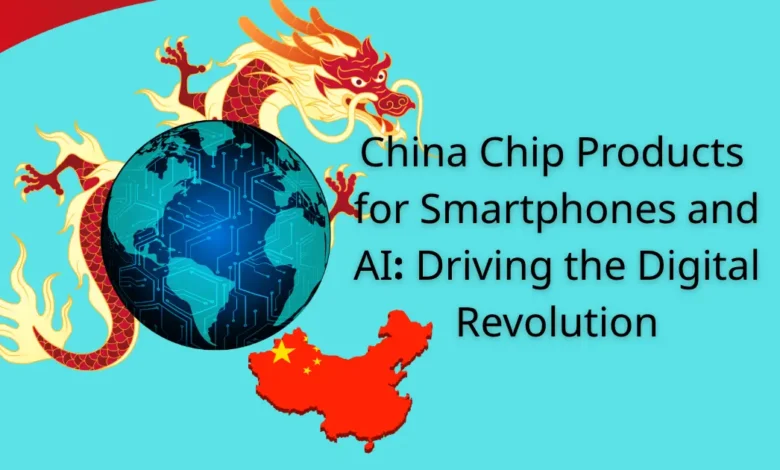China Chip Products for Smartphones and AI: Driving the Digital Revolution

China chip products for smartphones and AI are transforming global tech. Explore production, innovation, and their impact on AI and mobile devices.
table of contents
The Rise of China Chip Products for Smartphones and AI
In recent years, China chip products for smartphones and AI have become a major force in the global technology market. From high-performance mobile processors to AI accelerators, Chinese semiconductor manufacturers are reshaping the way devices function and industries innovate.
China’s drive to become a global leader in semiconductor technology is fueled by massive government investments, partnerships with leading tech companies, and a growing domestic demand for smart devices. This combination allows Chinese chipmakers to produce a wide range of products that serve smartphones, AI applications, data centers, and IoT devices.
The impact of these chips extends beyond devices; they influence global supply chains, competitive positioning of tech giants, and the pace of AI innovation. For more in-depth analysis of global chip trends,
Is China Surpassing America in Technology? – In-Depth Analysis by feenanoor
China Chip Products for Smartphones and AI: Key Manufacturers and Technologies
China’s semiconductor ecosystem is dominated by several major players:
- SMIC (Semiconductor Manufacturing International Corporation): Focuses on advanced logic chips for smartphones and AI hardware.
- Yangtze Memory Technologies: Specializes in NAND flash memory critical for storage in AI-driven smartphones and servers.
- HiSilicon (Huawei’s chipset division): Designs AI-focused mobile processors, integrating machine learning capabilities directly on devices.
These companies are developing chips optimized for AI tasks such as facial recognition, voice processing, and predictive analytics, which are essential for modern smartphones and smart home devices.
Production and Global Market Impact
The production scale of China chip products for smartphones and AI is staggering. Estimates suggest that China produces billions of chips annually, covering memory, logic, and AI accelerator components. This surge in production helps reduce reliance on foreign chip imports and supports China’s ambition for self-sufficiency in the semiconductor sector.
Moreover, Chinese chip products have become a cornerstone for smartphone manufacturers worldwide. Leading brands increasingly integrate these chips into mid-range and premium devices, balancing performance, efficiency, and cost.
From an AI perspective, these chips power applications such as autonomous systems, smart assistants, and real-time language translation, placing China at the forefront of AI-enabled technology.
Challenges and Opportunities
Despite the impressive growth, China chip products for smartphones and AI face challenges:
- Technological limitations: Advanced nodes like 3nm are still difficult for local fabs to produce at scale.
- Geopolitical tensions: Trade restrictions and export controls affect access to high-end manufacturing equipment.
- Competition: Taiwan, South Korea, and the US continue to dominate advanced chip technologies.
Nevertheless, opportunities abound: AI integration in consumer electronics, expansion of 5G networks, and investment in domestic chip innovation create a robust environment for growth and technological leadership.
Conclusion
China chip products for smartphones and AI are not just hardware components; they are drivers of innovation, efficiency, and the global digital revolution. By investing in advanced manufacturing and AI-optimized designs, China is positioning itself as a critical hub in the global semiconductor landscape.
FAQ
Q1: What types of chips does China produce for smartphones and AI?
A1: China produces mobile processors, memory chips, AI accelerators, and system-on-chip (SoC) designs for various applications.
Q2: How does China’s chip production impact the global market?
A2: It supports global smartphone manufacturers, reduces dependency on imports, and accelerates AI innovation worldwide.
Q3: Who are the leading Chinese chip manufacturers?
A3: SMIC, Yangtze Memory Technologies, and HiSilicon are among the top producers focusing on smartphone and AI chips.
Q4: What challenges do Chinese chip producers face?
A4: Technological limitations, geopolitical restrictions, and international competition are key challenges.
Discover more from Feenanoor
Subscribe to get the latest posts sent to your email.














